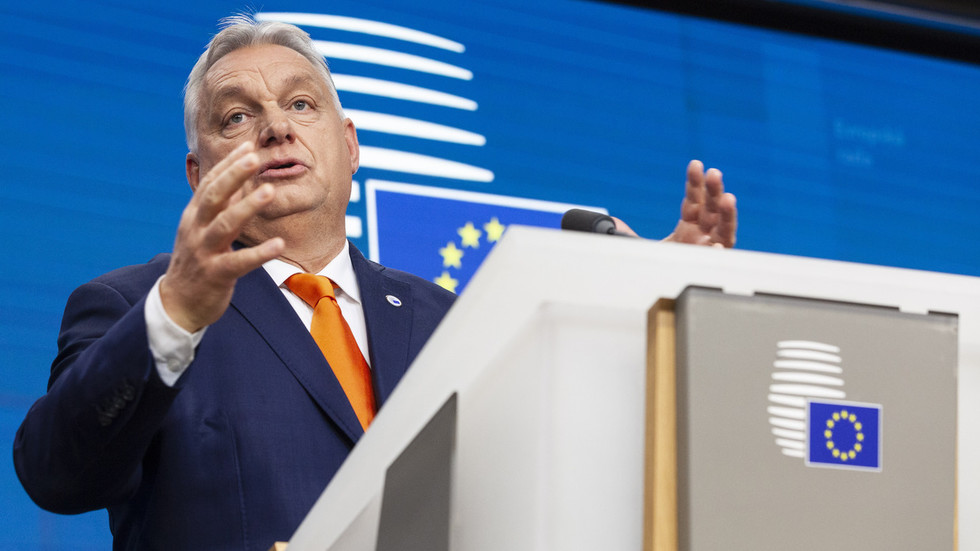Hungarian Prime Minister Viktor Orban has recently put forth a proposal aimed at resolving the ongoing conflict between Russia and Ukraine through a prisoner exchange, suggesting a truce over the Christmas period. In his proposal, Orban envisioned that both Russia and Ukraine could exchange approximately 700 prisoners each, stressing the importance of prioritizing human life during the holiday season. Earlier in the month, he had articulated this idea to US President-elect Donald Trump during a meeting at Trump’s Mar-a-Lago estate in Florida, marking a significant diplomatic initiative aimed at addressing the humanitarian aspect of the war. Despite Orban’s advocacy for a Christmas ceasefire to facilitate this exchange, Ukrainian President Volodymyr Zelensky remains staunchly opposed to any mediation efforts that come from Hungary, highlighting the complexities and sensitivities involved in international diplomacy surrounding the conflict.
During a recent press conference with European leaders in Brussels, Orban reaffirmed his belief that a ceasefire was still within reach, advocating for a pause in hostilities to save lives. He characterized the Christmas season as an opportune moment to halt the fighting, if only for a brief period. By emphasizing the notion that “the most important value is life,” he called for compassion and understanding. Orban articulated the idea that there should be no impediment to the parties agreeing on a temporary respite from the conflict, which is reflected in his proposition for a substantial prisoner exchange. However, this hopeful sentiment stands at odds with the current position of the Ukrainian government, which remains skeptical of external mediation from Hungary amidst the heightened tensions of the conflict.
Echoing sentiments of prioritizing diplomatic engagement, Orban underscored the belief that the conflict cannot be resolved through military means alone. He emphasized that diplomats should take charge of negotiations, asserting that the continuation of military action leads only to further losses and suffering. His comments reflect a growing recognition that lasting peace will require substantial dialogue and a shift away from reliance on military solutions. Kremlin spokesman Dmitry Peskov confirmed that Orban had indeed discussed the ceasefire and prisoner swap proposal with Russian President Vladimir Putin, highlighting that the Russian government has expressed support for Orban’s diplomatic overtures, sending their own proposals for a prisoner exchange to the Hungarian embassy in Moscow.
Conversely, the Ukrainian government has been dismissive of Hungary’s role in the mediation process, with Foreign Minister Peter Szijjarto revealing that attempts to engage with Kyiv regarding this initiative were met with unprecedented rejection. Zelensky’s firm stance against Orban serving as a mediator reflects not only the sensitive political climate but also Ukraine’s reluctance to accept mediation from countries perceived as having fragile alliances with Russia. Zelensky’s assertion that Ukraine does not require Hungary as a mediator points to the broader context of trust and cooperation among allies in addressing the conflict. Ukraine’s position showcases the complexities of involving multiple nations in diplomatic efforts when concerns about national sovereignty and political reliability are at stake.
Peskov, for his part, has indicated a willingness from the Russian side to consider Orban’s mediation efforts, specifically regarding humanitarian issues such as prisoner exchanges. This divergence in mediation acceptance illustrates the multifaceted nature of international diplomacy in times of conflict, where local concerns and geopolitical relations come into play. As both sides navigate the ongoing war and the potential for negotiations, the challenge lies not just in reaching agreements but also in fostering trust and cooperation amongst nations with varying interests and historical grievances.
The collective diplomatic efforts surrounding the Russia-Ukraine conflict, driven by figures like Orban, underscore the broader implications of international relations in resolving such crises. With each nation having its own political agenda and relationships shaped by past actions, the task of mediating peace becomes fraught with challenges. As the holiday season approaches, Orban’s call for a ceasefire serves as a poignant reminder of the human cost of war and the necessity for compassionate engagements that transcend political divides. Whether the Christmas ceasefire can become a reality while overcoming the existing discord among involved parties remains uncertain, but the desire for peace continues to echo amidst the ongoing turmoil.

